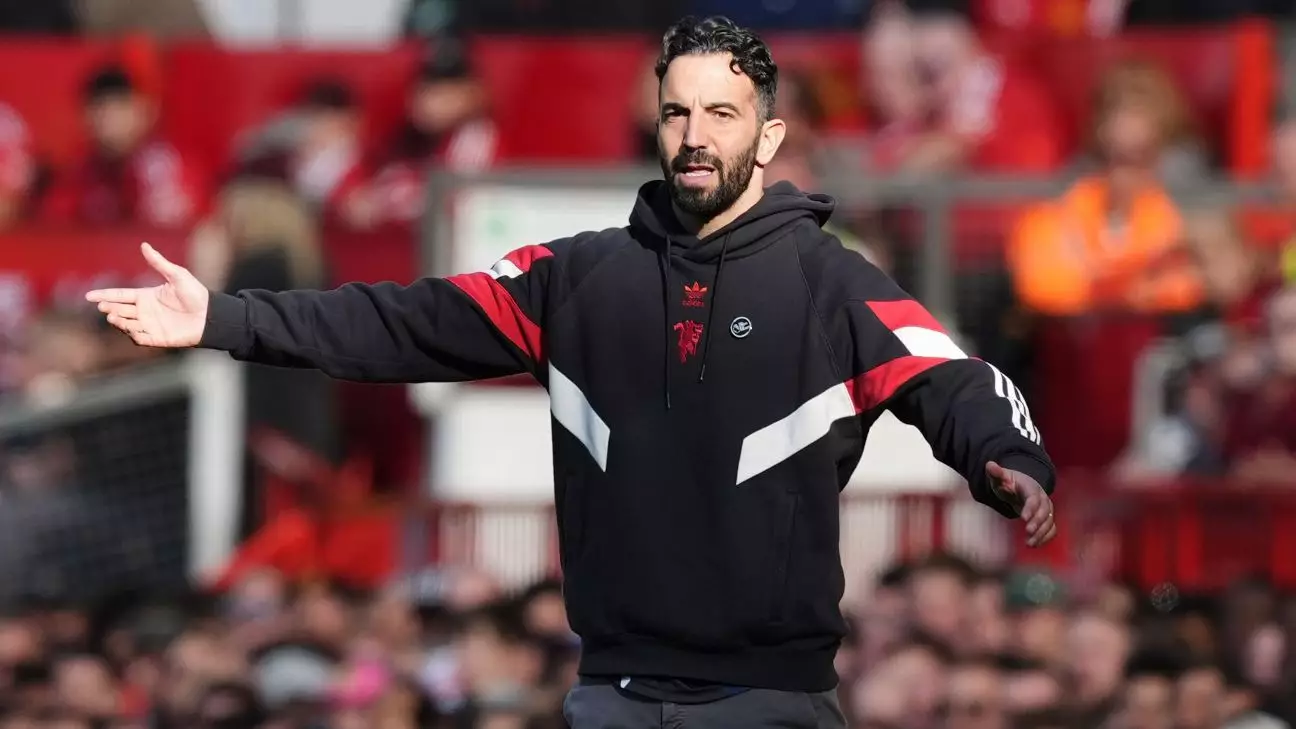In what was billed as a high-stakes encounter, the Manchester derby delivered a tepid spectacle that disappointed fans and pundits alike. Ruben Amorim’s response to critical remarks from Gary Neville highlights a growing tension in football when expectations clash with reality. The goalless draw at Old Trafford, which at first glance may seem like a typical result in a high-profile clash, portrays a deeper issue in the fabric of modern football. The real question transcends the event itself: what has led to such a mundane outcome in a rivalry filled with historic intensity?
Analyzing the Shift in Mindset
Gary Neville’s frustrations articulated during the match encapsulate a wider sentiment impacting contemporary football—teams appear increasingly risk-averse, stifling the very creativity that once defined the beautiful game. His commentary critiqued the prevailing obsession with maintaining shape and avoiding errors rather than embracing adventure and unpredictability. The irony is palpable; while fans crave excitement, players are seemingly shackled by a fear of making mistakes, resulting in sterile performances devoid of the innovation that epitomizes the English Premier League.
Amorim, however, offers a polarizing perspective in response to Neville’s reflections. He contextualizes the players’ performances, citing their respective seasons as factors in this lack of enthusiasm. Yet, the broad acceptance of mediocrity as a norm raises alarming questions about the competitive spirit currently reverberating through top-flight football. As teams prioritize results over artistry, they lose sight of the essence that once captivated audiences, transforming high-stakes matchups into monotonous affairs.
A Battle of Perspectives
Neville’s continued critique post-match garners sympathy from purists who yearn for the thrill of traditional derbies—the unscripted moments that can turn a game on its head. His allusion to a leisurely Sunday roast dinner paints a more troubling picture—are these teams satisfied with a lackluster performance simply for the safety of a point? Amorim’s insistence on the differing contexts of United’s and City’s predicaments might hold merit, yet intentional flatness on the field cannot be justified. The allure of fierce competition is dimming, replaced by an unspoken agreement to play it safe.
Future Consequences
What does this say about the future of football? As teams navigate through their competitive responsibilities, the sport could face an existential crisis which prioritizes a cautious approach over riveting clashes. The upcoming fixtures, including Manchester United’s Europa League match against Lyon, will undeniably further evolve this narrative. It’s a precarious tightrope—juggling aspirations against the fear of failure.
As football fans, we stand at a crossroads: do we accept a diluted product in pursuit of caution, or do we demand a return to the flair that makes football a spectacle? The path ahead for clubs like Manchester City and Manchester United will undoubtedly shape the discourse surrounding the game, with reverberations felt far beyond the pitch.

